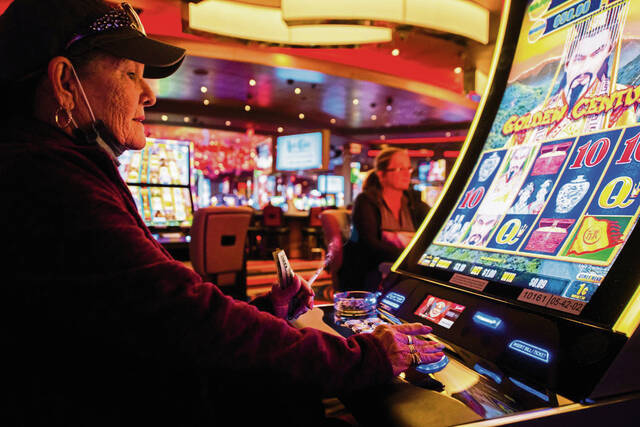Pennsylvania has a lot of industries working inside its borders. Manufacturing, agriculture, recreation, health care, banking, education. The diverse landscape and workforce make for fertile ground to plant a business.
One industry is showing the kind of year-over-year growth that would make internet billionaires green with envy.
Despite the shutdowns and social distancing at the height of pandemic responses in 2020, the gambling industry in the Keystone State posted a $2.6 billion year across its various platforms of slot machines, table games, sports and other entertaining ways of trying to win big.
The Pennsylvania Gaming Control Board announced the 2021 numbers. They dwarfed the previous year — a whopping $4.7 billion. That’s an increase of more than 80%.
Slot machines alone accounted for almost as much revenue as all of 2020, generating $2.2 billion. Internet gambling also topped $1 billion, with table games close behind at $924.9 million. The remaining money came from sports betting ($340.1 million), fantasy sports contests ($29.2 million) and video gaming terminals ($39.8 million).
Altogether, it has put an impressive $1.93 billion in the state’s tax coffers from gambling. There would actually be more generated by the sales taxes from related business such as restaurants and conference traffic, hotels, travel and more.
The Southwestern Pennsylvania casinos are a big part of that. In December, Rivers Casino Pittsburgh, Meadows Casino, Live! Casino Pittsburgh and Lady Luck Casino Nemacolin posted combined revenues of $63.7 million compared to $18.6 million in December 2020.
It’s a real boom, but how long can that bubble continue to grow?
The thing about gambling is that it depends on taking disposable — and sometimes not-so- disposable — income from its patrons. As inflation grows and as more people have dropped out of the workforce over the past two years even without the added unemployment benefits, how long will that disposable income last?
The casinos are definitely contributing to their communities via jobs and the money that circulates back in rent and groceries and gas and all of the other must-pay items that keep the economy going.
The question is whether that record growth is sustainable as people have to pay more for their housing and food and fuel, leaving less in the wallet to go for slot machines and table games. And if gambling continues to be something people are willing to do as money gets tighter, is there anything the state can do about it?








